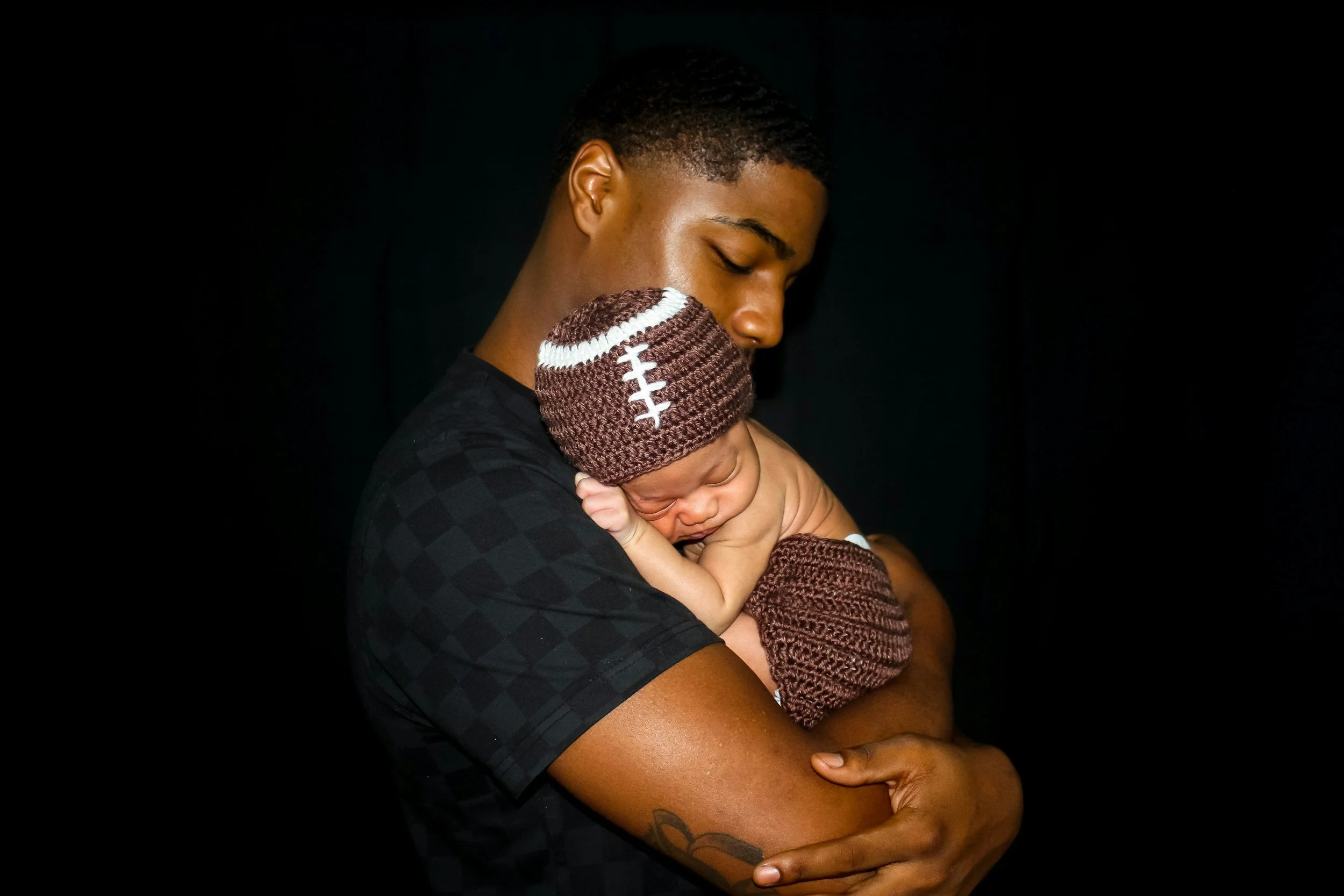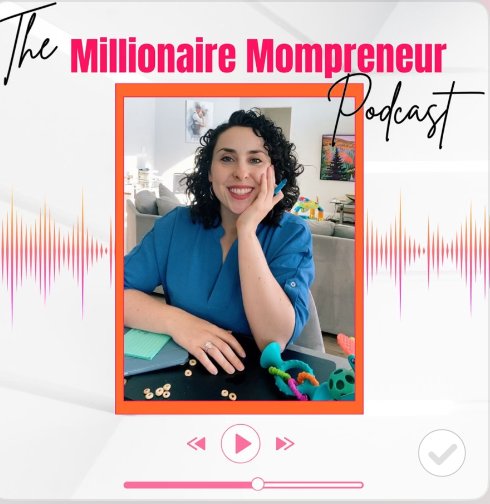Are We Ready for Marriage? 5 Signs You’re on the Right Path (and 3 Red Flags to Watch For)
You’ve found your person. You love each other. You’re planning your future together.
But deep down, you might still wonder: Are we truly ready for marriage?
This is completely normal. Love alone doesn’t automatically mean a relationship is prepared for the realities of marriage. The good news? You don’t have to be “perfect” to be ready—you just need the right foundation.
Here are five signs you’re on the right path (and three red flags you shouldn’t ignore).
How Your Attachment Style Affects Your Marriage (and How to Build Security as a Couple)
Marriage isn’t just about love—it’s about how you and your partner relate to one another.
Why do some couples feel effortlessly secure, while others struggle with emotional distance, misunderstandings, or cycles of conflict? Often, it comes down to attachment styles—the patterns we develop in childhood that shape how we connect, communicate, and navigate intimacy in adulthood.
If you’ve ever wondered why you and your partner experience conflict in a certain way, or why one of you seems to crave closeness while the other needs space, understanding attachment theory can help.
Breaking the Cycle: How Attachment Trauma Fuels Caregiver Burnout
Do you feel like caregiving is draining the life out of you? Maybe you’re constantly overwhelmed, feeling like you’re never doing enough, or even battling resentment—but stepping back feels impossible. For many people, particularly those from BIPOC communities, this struggle often runs deeper than the day-to-day demands of caregiving. It’s rooted in attachment trauma—early patterns of neglect, inconsistency, or rejection that now shape how you care for others.
Reclaiming Yourself: How to Stop Caregiving from Taking Over Your Identity
Caregiving often demands every part of you—your time, energy, and emotional capacity. While the act of caring for someone else is an expression of love and dedication, it can also lead to a quiet erosion of your own identity. When the lines between caring for others and caring for yourself blur, you might find yourself asking, “Who am I beyond this role?”
Caring for Others Without Losing Yourself: How Attachment Styles Influence Caregiver Fatigue
Being a caregiver—whether for a loved one, a child, or a partner—is one of the most selfless acts of love. But while caregiving can be deeply fulfilling, it can also be physically exhausting and emotionally overwhelming. If you’ve found yourself constantly drained, disconnected from your own needs, or wondering how much longer you can keep going, you’re not alone.
Healing Body Image Through the Lens of Attachment Trauma
Body image struggles often run deeper than dissatisfaction with appearance—they’re rooted in how we see ourselves, the narratives we’ve internalized, and the way we learned to navigate connection and safety. For many, attachment trauma plays a central role in shaping body image issues, leaving lasting imprints on self-worth and self-perception.
How Attachment Styles Shape Your Relationship with Food and Your Body
Your relationship with food and your body is more than just a reflection of societal pressures or media influence. It’s deeply tied to your emotional well-being, sense of self, and the patterns established in your earliest relationships. These patterns, known as attachment styles, shape not only how you connect with others but also how you treat yourself—including how you eat, view your body, and respond to emotional needs.
Emotional Eating and Attachment: Breaking the Cycle
Do you find yourself reaching for snacks when you’re stressed, lonely, or overwhelmed? Emotional eating is a common response to life’s challenges, but it often goes deeper than cravings or willpower. It’s about how we cope with unmet emotional needs and unresolved feelings.
Depression and Attachment Trauma: Breaking Free from Patterns That Hold You Back
Depression often feels like a persistent fog, dulling your joy and stealing your energy. For marginalized professionals, this weight can be compounded by unique pressures like systemic inequities, workplace discrimination, and cultural expectations. But beneath the surface, depression is frequently tied to unresolved attachment trauma—wounds from early caregiving relationships that shape how you see yourself and connect with the world.
The Hidden Link Between Anxiety and Your Attachment Style
Anxiety doesn’t exist in a vacuum—it’s intricately connected to how we’ve learned to relate to others. Our attachment style, developed in early childhood, plays a profound role in shaping our fears, insecurities, and emotional responses in relationships.
Why Emotional Triggers Feel So Big: Anxiety, Depression, and Attachment Wounds
Ever feel like a small comment, a missed call, or a subtle shift in someone’s tone sends your emotions spiraling? If so, you’re not alone. Emotional triggers often feel disproportionately overwhelming because they tap into unresolved attachment wounds—deep-rooted echoes of past pain that shape how we experience and respond to the present. Understanding why emotional triggers feel so intense is the first step toward healing and reclaiming your emotional well-being.
The Hidden Ways Your Childhood Shapes Your Relationship—And How to Break Unhealthy Cycles
Relationships don’t just happen in the present. Whether you realize it or not, the way you communicate, express love, handle conflict, and even choose partners is deeply influenced by your early childhood experiences.
Maybe you’ve found yourself repeating patterns in relationships—attracting emotionally unavailable partners, struggling with trust, or feeling like you have to earn love. These patterns aren’t random. They often stem from how love, connection, and security were modeled for you growing up.
The good news? You don’t have to stay stuck in unhealthy cycles. By recognizing these hidden influences, you can start making intentional choices that lead to secure, fulfilling relationships.
5 Signs You’re Experiencing Attachment-Based Grief—and How Therapy Can Help
Grief can feel isolating and overwhelming, but for many, it’s more than just sadness. When grief intersects with attachment wounds, it can magnify feelings of disconnection, fear, and self-doubt, making it even harder to heal.
Understanding how your attachment style influences your grieving process can unlock new paths to healing and connection. Here are five signs you may be experiencing attachment-based grief and how therapy can help you move forward.
How Attachment Therapy Transforms the Grieving Process
Grief isn’t just about what we’ve lost—it’s about how we carry it. The process of mourning often intertwines with our attachment patterns, shaping how we navigate the pain of disconnection. For many, grief can leave us feeling unmoored, vulnerable, and unsure how to move forward.
Attachment therapy offers a compassionate, individualized approach to grief, focusing on understanding your loss, creating emotional safety, and restoring a sense of connection and meaning. Here’s how we approach grief together through the lens of attachment.
Attachment-Based Therapy for Postpartum Depression and Anxiety
Motherhood is a journey full of profound changes—joyful, challenging, and often overwhelming. For many parents, the postpartum period can stir up unexpected emotions, from sadness and anxiety to feelings of disconnection. When postpartum depression or anxiety enters the picture, it can feel isolating and all-consuming.
Attachment-based therapy offers a compassionate, effective approach to navigating these struggles. By focusing on connection—with yourself, your baby, and your loved ones—this therapeutic method helps parents heal, grow, and thrive.
Navigating the Return to Work: Postpartum Moms and Attachment Therapy
Returning to work after having a baby can feel like an emotional tug-of-war. You’re balancing the demands of a career, the needs of your baby, and your own well-being—all while navigating a significant life transition. For many moms, this period can stir up feelings of guilt, anxiety, and uncertainty, especially when concerns about attachment and bonding arise.
Breaking the Silence: Men and Postpartum Depression
When we think of postpartum depression or anxiety, the focus almost always falls on mothers. After all, they carry the physical, emotional, and hormonal weight of pregnancy and childbirth. But what often goes unspoken is this: Fathers and non-birthing partners can experience postpartum depression and anxiety too.
Balancing Grief and Joy During the Holiday Season: What It Means, How to Do It, and Why It Matters
The holiday season is often portrayed as a time of unrelenting joy—glowing lights, cheerful music, and endless celebrations. But for many of us, the holidays are far more complex. They can be a time of gratitude and connection, but they can also stir feelings of loss, longing, or unfulfilled expectations. Balancing grief and joy during this season isn’t about choosing one emotion over the other—it’s about making space for both to coexist.
How to Create Closure from Painful Workplace Experiences: 5 Tools to Move Forward
Painful workplace experiences can leave deep emotional scars. Whether it’s being passed over for a promotion, dealing with a toxic manager, or navigating the complexities of being laid off, these moments don’t just affect your career—they impact your confidence, self-worth, and even your relationships outside of work.
The hardest part? The professional world rarely offers the clean endings we crave. Unlike personal relationships, where we might at least have the opportunity to seek explanations or apologies, the workplace often leaves us with unanswered questions, unresolved feelings, and an expectation to “just move on.”
But here’s the truth: closure isn’t something your workplace—or the people within it—hands you. Closure is something you create.
Breaking Patterns and Building Awareness: How Your Attachment Style Impacts Your Business and Parenting
As therapists, parents, or business owners, we often find ourselves navigating relationships in many forms—whether it’s with our clients, children, or colleagues. But how often do we pause and ask ourselves: How is my attachment style influencing the way I show up?
I recently had the privilege of diving deep into this topic on the Millionaire Mompreneur Podcast with Alexa Starks. Together, we explored how our attachment styles shape not only our relationships but also our parenting and professional lives. It was a conversation filled with personal reflections, actionable insights, and heartfelt realizations.



















